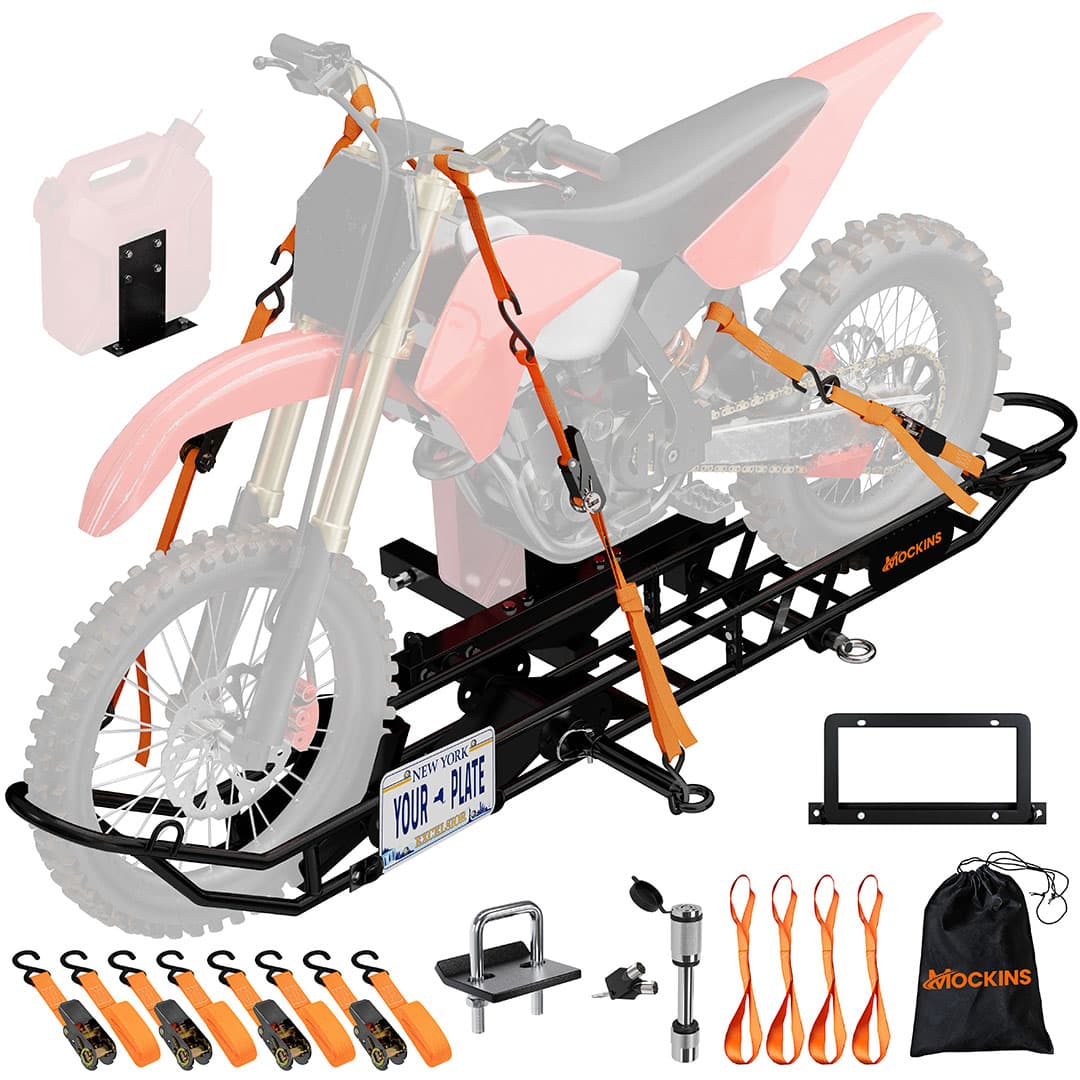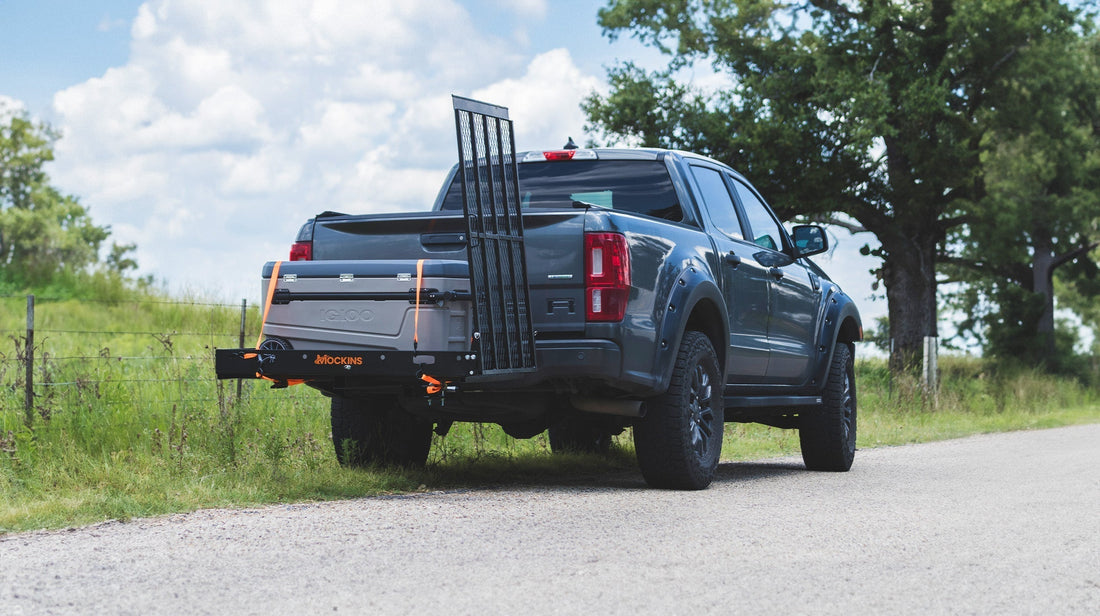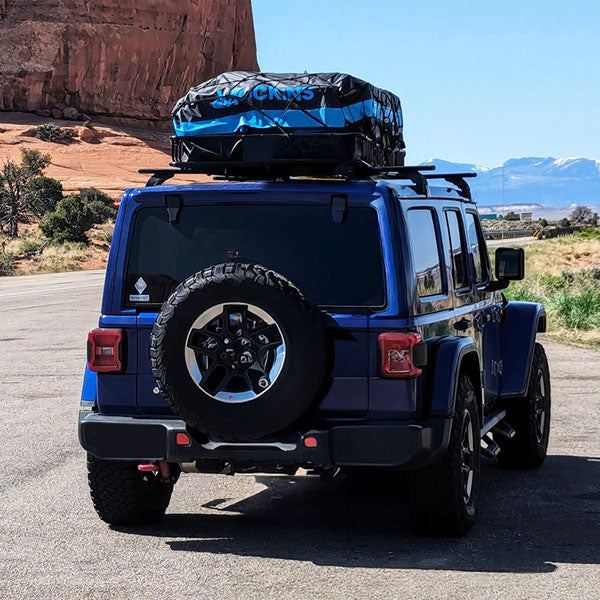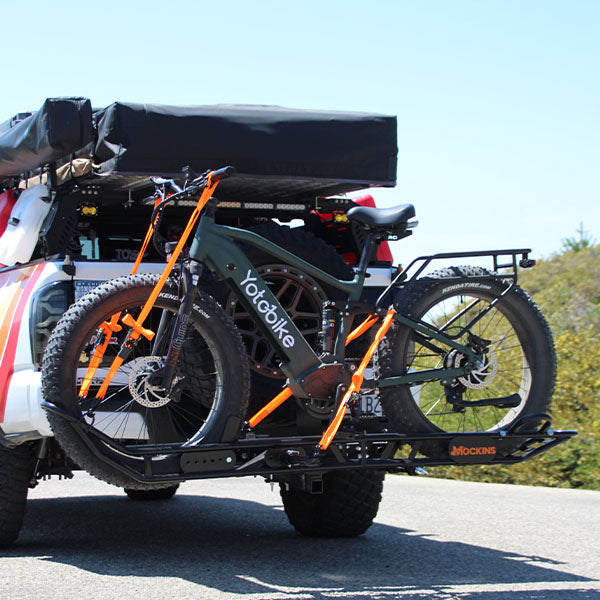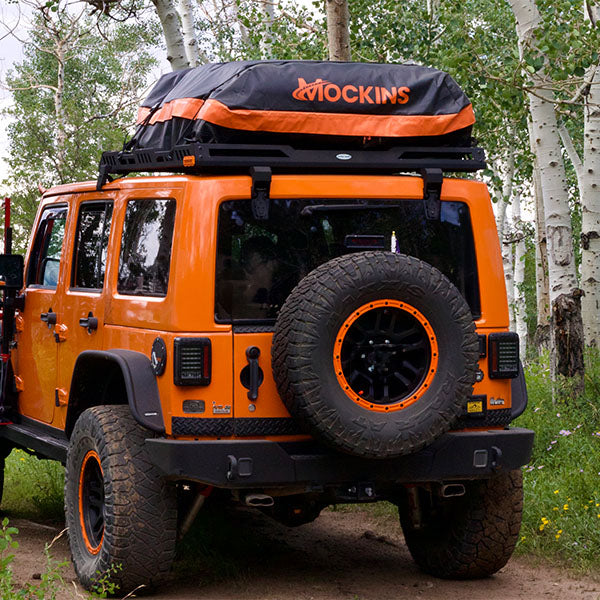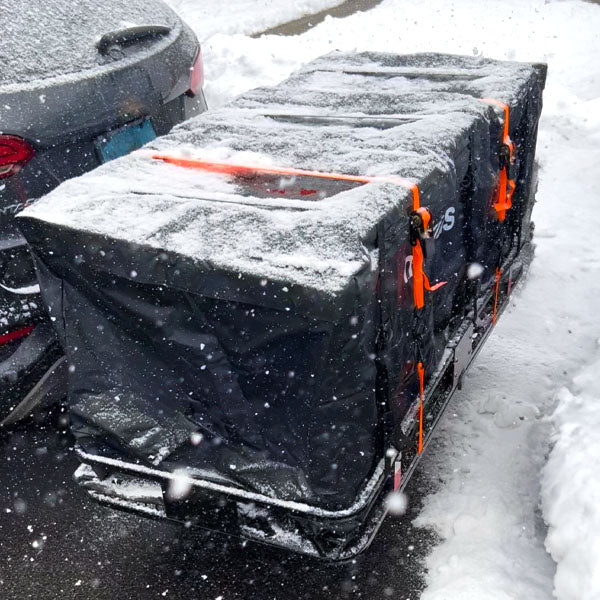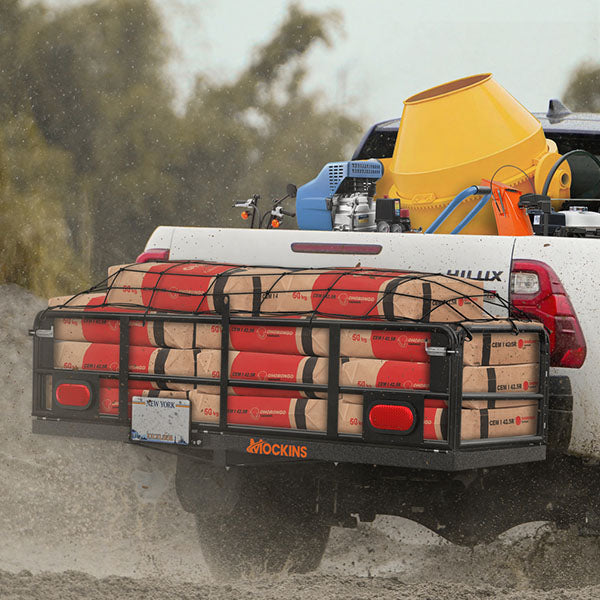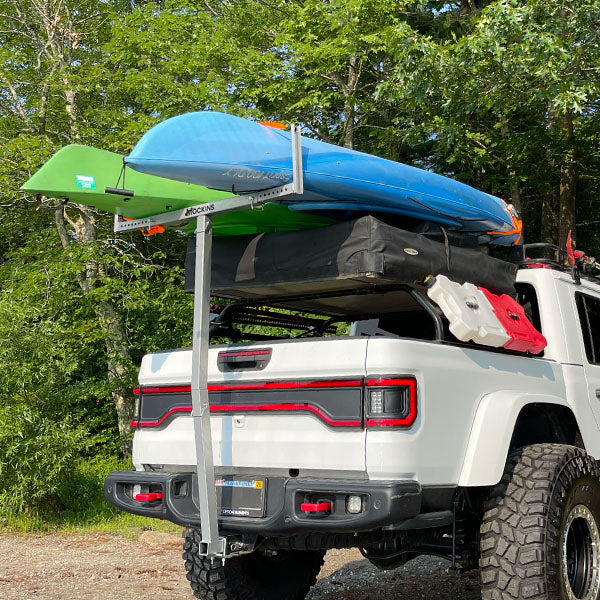Alright, adventurers, gather 'round the campfire because today we're diving into a topic that's as crucial as your morning coffee on a brisk outdoor morning: tongue weight. If you’re towing anything – from a hitch carrier to a small utility trailer to your mobile palace of a camper – understanding tongue weight is crucial to avoiding mishaps during your adventures.
You can also check out any of our Mockins hitch mount cargo carriers, designed and manufactured by Mockins, a USA based company.
What is Tongue Weight, Anyway?
Imagine your trailer is a see-saw and your vehicle’s hitch is the pivot point. Tongue weight is the downward force that the front of your trailer exerts on the hitch. It’s the sweet spot that keeps everything balanced, like a perfectly roasted marshmallow – not too burnt, not too gooey. Too much or too little tongue weight can lead to some serious towing troubles.
The Science Behind the See-Saw
Why does this matter? Well, think of it like this: if your tongue weight is too light, your trailer is going to have a mind of its own, swaying and fishtailing down the highway like it’s auditioning for a dance competition. Too heavy, and you’ll be putting undue stress on your vehicle’s rear, making steering a nightmare and braking even scarier. Balance is key, much like maintaining peace when camping with the in-laws.
The Superiority of Tow Hitch Carriers
Now, let's talk about tow hitch carriers. These bad boys are a game-changer when it comes to tongue weight. They distribute the weight more evenly across your vehicle’s frame, taking some of the pressure off the hitch and helping to maintain that perfect balance. Plus, they free up valuable space inside your vehicle, making your overlanding experience much more comfortable.
Finding the Sweet Spot
So, how do you find this magical balance? The ideal tongue weight is typically about 10-15% of your trailer’s total weight. If your trailer weighs 2,000 pounds, your tongue weight should be between 200 and 300 pounds. Think of it like packing for a trip: too much on one side, and your suitcase tips over; too little, and it’s unstable. Balance is the name of the game.
How to Measure Tongue Weight
Time to get hands-on. Measuring tongue weight isn’t rocket science, but it does require some nifty tools and a bit of patience:
- Tongue Weight Scale: The easiest and most accurate method. Place the scale under the trailer jack, lower the tongue, and voilà! You get the exact tongue weight.
- Bathroom Scale and a Lever: For smaller trailers, use a bathroom scale with a sturdy piece of wood as a lever. It’s like a homegrown physics experiment – fun and functional!
- Commercial Hitch Scale: If you’re towing frequently, investing in a commercial hitch scale can save you a lot of guesswork and hassle. Plus, you get to feel like a professional road warrior.
Adjusting Tongue Weight
Alright, you’ve measured your tongue weight and – gasp – it’s off. Don’t panic. Adjusting tongue weight is a straightforward process:
- Too Light? Shift more weight to the front of the trailer or carrier. Move that extra water tank, heavy cooler, or those mystery boxes labeled “camping essentials” (we know they’re snacks) closer to the hitch.
- Too Heavy? Redistribute weight towards the back of the trailer. Just don’t go too far, or you’ll be back to the fishtailing nightmare.
Safety First
Proper tongue weight is essential for a safe and enjoyable journey. It affects your vehicle’s handling, braking, and overall stability. So, treat it with the respect it deserves. It’s like the unsung hero of your towing setup – you might not see it, but you’ll definitely feel it if something goes wrong.
The Low Down
Mastering tongue weight might not be the most glamorous part of preparing for your adventure, but it’s absolutely crucial. It’s the difference between a smooth, enjoyable ride and a white-knuckle, sweat-inducing ordeal. So, next time you hitch up, take a moment to check that tongue weight. Your vehicle, your cargo carrier, and your sanity will thank you...
…or, if this has all sounded like a bunch of gibberish, you can always opt for the simplicity of a rooftop carrier!
